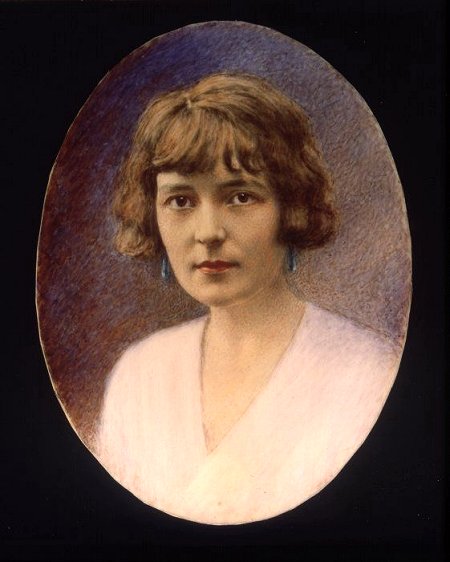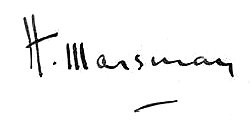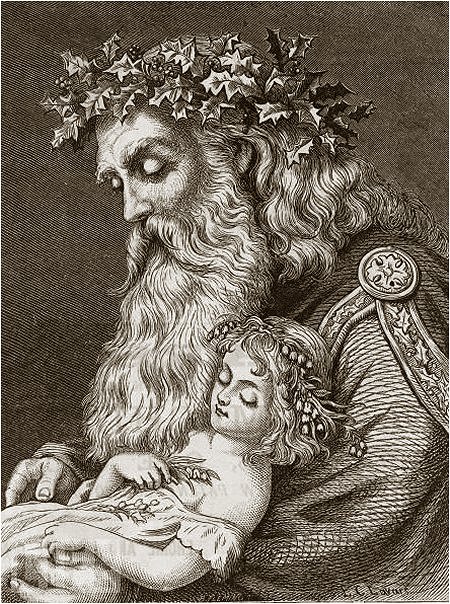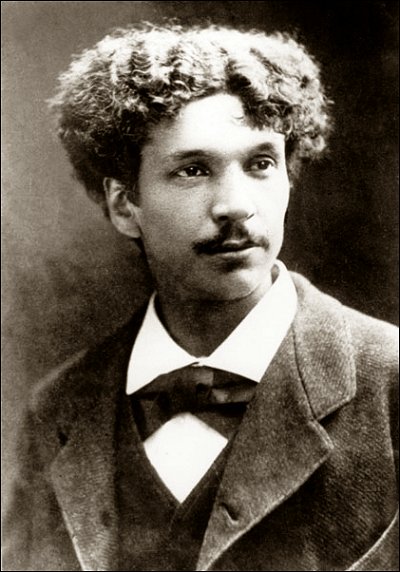Fleurs du Mal Magazine


Or see the index
.jpg)
Guy de Maupassant
(1850-1893)
Nuit de Neige
La grande plaine est blanche, immobile et sans voix.
Pas un bruit, pas un son; toute vie est éteinte.
Mais on entend parfois, comme une morne plainte,
Quelque chien sans abri qui hurle au coin d’un bois.
Plus de chansons dans l’air, sous nos pieds plus de chaumes.
L’hiver s’est abattu sur toute floraison;
Des arbres dépouillés dressent à l’horizon
Leurs squelettes blanchis ainsi que des fantômes.
La lune est large et pâle et semble se hâter.
On dirait qu’elle a froid dans le grand ciel austère.
De son morne regard elle parcourt la terre,
Et, voyant tout désert, s’empresse à nous quitter.
Et froids tombent sur nous les rayons qu’elle darde,
Fantastiques lueurs qu’elle s’en va semant;
Et la neige s’éclaire au loin, sinistrement,
Aux étranges reflets de la clarté blafarde.
Oh! la terrible nuit pour les petits oiseaux!
Un vent glacé frissonne et court par les allées;
Eux, n’ayant plus l’asile ombragé des berceaux,
Ne peuvent pas dormir sur leurs pattes gelées.
Dans les grands arbres nus que couvre le verglas
Ils sont là, tout tremblants, sans rien qui les protège;
De leur oeil inquiet ils regardent la neige,
Attendant jusqu’au jour la nuit qui ne vient pas.
.jpg)
Guy de Maupassant poetry
fleursdumal.nl magazine
More in: Archive M-N, Archive M-N, Guy de Maupassant, Maupassant, Guy de
.jpg)
W i l l i a m S h a k e s p e a r e
(1564-1616)
T H E S O N N E T S
18
Shall I compare thee to a summer’s day?
Thou art more lovely and more temperate:
Rough winds do shake the darling buds of May,
And summer’s lease hath all too short a date:
Sometime too hot the eye of heaven shines,
And often is his gold complexion dimmed,
And every fair from fair sometime declines,
By chance, or nature’s changing course untrimmed:
But thy eternal summer shall not fade,
Nor lose possession of that fair thou ow’st,
Nor shall death brag thou wand’rest in his shade,
When in eternal lines to time thou grow’st,
So long as men can breathe or eyes can see,
So long lives this, and this gives life to thee.
![]()
k e m p i s p o e t r y m a g a z i n e
More in: -Shakespeare Sonnets

Katherine Mansfield
(1888-1923)
A Day in Bed
I wish I had not got a cold,
The wind is big and wild,
I wish that I was very old,
Not just a little child.
Somehow the day is very long
Just keeping here, alone;
I do not like the big wind’s song,
He’s growling for a bone
He’s like an awful dog we had
Who used to creep around
And snatch at things—he was so bad,
With just that horrid sound.
I’m sitting up and nurse has made
Me wear a woolly shawl;
I wish I was not so afraid;
It’s horrid to be small.
It really feels quite like a day
Since I have had my tea;
P’raps everybody’s gone away
And just forgotten me.
And oh! I cannot go to sleep
Although I am in bed.
The wind keeps going creepy-creep
And waiting to be fed.
A Fine Day
After all the rain, the sun
Shines on hill and grassy mead;
Fly into the garden, child,
You are very glad indeed.
For the days have been so dull,
Oh, so special dark and drear,
That you told me, "Mr. Sun
Has forgotten we live here."
Dew upon the lily lawn,
Dew upon the garden beds;
Daintly from all the leaves
Pop the little primrose heads.
And the violets in the copse
With their parasols of green
Take a little peek at you;
They’re the bluest you have seen.
On the lilac tree a bird
Singing first a little not,
Then a burst of happy song
Bubbles in his lifted throat.
O the sun, the comfy sun!
This the song that you must sing,
"Thank you for the birds, the flowers,
Thank you, sun, for everything."
A Few Rules for Beginners
Babies must not eat the coal
And they must not make grimaces,
Nor in party dresses roll
And must never black their faces.
They must learn that pointing’s rude,
They must sit quite still at table,
And must always eat the food
Put before them—if they’re able.
If they fall, they must not cry,
Though it’s known how painful this is;
No—there’s always Mother by
Who will comfort them with kisses.
Katherine Mansfield poetry
k e m p i s p o e t r y m a g a z i n e
More in: Mansfield, Katherine

Hendrik Marsman
(1899-1940)
Vrouw
Lichaam, wentelend al-leven.
gedrochtelijk staan wij en massaal geheven
tegen de rottend-paarse hemel van verlangen
hijgende nacht
mijn vale handen tasten even
het slierend kransen van uw blauwe haren,
die, gif en scheemring, vachten hemel waren
over al-ruimte, uw gelaat, ivoor ovaal,
waarin uw ogen, spitse spleten, hangen:
een groen signaal.
De voortekenen
Soms was zij heel de dag met zichzelve alleen.
langzaam boog zij zich dan af naar de wand
en zij verdween in onzichtbare verten; hij bleef alleen
achter, wachtende of zij wel keren zou uit dat land.
later keerde zij dan, maar zij was zo doordrenkt
door vijandige geuren en vreemde, geheimzinnige glansen,
dat hij zich door haar kussen verraden vond, en zich, gekrenkt
door de tederheid van haar machteloos en vermoeid erbarmen
langzaam uit de angst van haar tengere armen bevrijden moest.
Herfst
De avonden donkeren al.
dit is het regenende jaargetijde
waarin wij haar eenmaal ten grave droegen;
ook toen sloegen de bladeren en de regen
over de paden en de zwarte wegen
en het woei duister in de donkre groeve.
alleen was het toen vroeger herfst
en droever.

Hendrik Marsman poetry
fleursdumal.nl m a g a z i n e
More in: Archive M-N, Marsman, Hendrik
.jpg)
A l f o n s i n a S t o r n i
(1892-1938)
A Eros
He aqui que te cacé por el pescuezo
a la orilla del mar, mientras movías
las flechas de tu aljaba para herirme
y vi en el suelo tu floreal corona.
Como a un muñeco destripé tu vientre
y examiné sus ruedas engañosas
y muy envuelta en sus poleas de oro
hallé una trampa que decía: sexo.
Sobre la playa, ya un guiñapo triste,
te mostré al sol, buscón de tus hazañas,
ante un corro asustado de sirenas.
Iba subiendo por la cuesta albina
tu madrina de engaños, Doña Luna,
y te arrojé a la boca de las olas.
![]()
fleursdumal.nl magazine
More in: Archive S-T, Storni, Alfonsina
.jpg)
Jef van Kempen – Vier gedichten
Norm
Het graf van de lezer is
voor mij een open boek,
want zelfs al blijkt het beeld
van de voorovergebogen dame
slechts een vage vlek op de muur,
(vergeef mij mijn zwak voor pikante details)
toch worden de mooiste en
onbestendigste van mijn dromen
ten alle tijden overvleugeld door
de kracht van mijn betoog:
het permanent en schaamteloos
verdraaien van de werkelijkheid,
als een wolk verstikkend gifgas
die door de regels raast
(meer dan 40 milligram per kubieke meter
dat is ver boven de veiligheidsnorm)
de met potlood onderstreepte woorden
voor altijd uitgewist,
het bloed van de lezer stroperig,
als het bloed van de ondode
die de angst om niet te sterven
een plaats geeft in waanzin.
Nee, liever eervol te sterven
dan als een lafaard te leven.
‘La-la-la ho-ho’ zong Rex Gildo
voordat hij voor altijd
uit het raam sprong
‘Es gibt dumme Tage da geht alles schief
da kommen die Geister die man gar nicht rief ‘.
Hoe troost je de achterblijvers?
Een dal van tranen?
Een stille tocht?
Een rake klap?
Wie schrijft
mag kieskeurig zijn.
Als brenger van het zwaard
beken ik al wat is gezegd
onder dwang
te hebben verklaard.
Requiem
O, dood, bedrieglijk, bedrieglijk scharminkel.
Daar waar (van aangezicht tot aangezicht)
onsterfelijke schoonheid onverdraaglijk wordt,
heult huichelachtige liefde met U:
spiegeltje, spiegeltje aan de wand,
wie is de mooiste van dit land?
Voor wie wit is, wit is als sneeuw,
is het lot van een graf in de zwarte,
in de zwarte aarde te zwaar.
O, dood, bedrieglijk, bedrieglijk scharminkel.
Zeven maal zeven maal zeven maal
zoveel niet-aflatende rouw om
deze nietsontziende vergankelijkheid.
Bij dit eenzame glazen graf stijgt een
woordloos gejammer op naar een verre,
naar een verre hemel:
die spiegel van eeuwigheid.
Talent
Om bedachtzaam
te lijken,
bal ik
de vuisten
op de rug.
Keesje
Een kaft van gemarmerd papier
bewaart het geheim
van een onooglijk mens.
Dat is te zeggen:
vaak omarmd en gekoesterd
als het heertje van de straat
(heel schoon en goed van gezicht,
want daar zorgde jouw oma wel voor)
deed hij er toch nog toe.
In ieder geval even.
Maar nooit nodeloos lang
wacht de dood.
Dat was alles.
Jef van Kempen (1948) publiceerde poëzie, biografische artikelen, essays en literaire bloemlezingen. Daarnaast is hij actief als beeldend kunstenaar. Jef van Kempen is medeoprichter en redacteur van o.a. de poëziewebsite: KEMP=MAG – kempis poetry magazine ( www.kempis.nl ) en van de website Antony Kok Magazine ( www. antonykok.nl ) In 1966 publiceerde hij zijn eerste dichtbundel: Wiet. In 2010 verschijnt een verzamelbundel met gedichten en illustraties: Laatste bedrijf, gedichten 1963-2009 bij uitgeverij Art Brut, Postbus 117, 5120 AC Rijen, ISBN: 978-90-76326-04-7.
k e m p i s p o e t r y m a g a z i n e
More in: Kempen, Jef van

Alfred Lord Tennyson
(1809-1892)
Ring Out, Wild Bells
Ring out, wild bells, to the wild sky,
The flying cloud, the frosty light;
The year is dying in the night;
Ring out, wild bells, and let him die.
Ring out the old, ring in the new,
Ring, happy bells, across the snow:
The year is going, let him go;
Ring out the false, ring in the true.
Ring out the grief that saps the mind,
For those that here we see no more,
Ring out the feud of rich and poor,
Ring in redress to all mankind.
Ring out a slowly dying cause,
And ancient forms of party strife;
Ring in the nobler modes of life,
With sweeter manners, purer laws.
Ring out the want, the care the sin,
The faithless coldness of the times;
Ring out, ring out my mournful rhymes,
But ring the fuller minstrel in.
Ring out false pride in place and blood,
The civic slander and the spite;
Ring in the love of truth and right,
Ring in the common love of good.
Ring out old shapes of foul disease,
Ring out the narrowing lust of gold;
Ring out the thousand wars of old,
Ring in the thousand years of peace.
Ring in the valiant man and free,
The larger heart, the kindlier hand;
Ring out the darkness of the land,
Ring in the Christ that is to be.
.jpg)
January 1, 2010
kempis poetry magazine wishes you a Happy New Year!
More in: Archive S-T, Tennyson, Alfred Lord

C h a r l e s C r o s
(1842-1888)
A u x i m b é c i l e s
Quant nous irisons
Tous nos horizons
D’émeraudes et de cuivre,
Les gens bien assis
Exempts de soucis
Ne doivent pas nous poursuivre.
On devient très fin,
Mais on meurt de faim,
A jouer de la guitare,
On n’est emporté,
L’hiver ni l’été,
Dans le train d’aucune gare.
Le chemin de fer
Est vraiment trop cher.
Le steamer fendeur de l’onde
Est plus cher encor ;
Il faut beaucoup d’or
Pour aller au bout du monde.
Donc, gens bien assis,
Exempts de soucis,
Méfiez-vous du poète,
Qui peut, ayant faim,
Vous mettre, à la fin,
Quelques balles dans la tête.

Charles Cros poetry
k e m p i s p o e t r y m a g a z i n e
KEMP=MAG
More in: Cros, Charles
.jpg)
Charlotte Brontë
(1816–1855)
Mementos
Arranging long-locked drawers and shelves
Of cabinets, shut up for years,
What a strange task we’ve set ourselves!
How still the lonely room appears!
How strange this mass of ancient treasures,
Mementos of past pains and pleasures;
These volumes, clasped with costly stone,
With print all faded, gilding gone;
These fans of leaves from Indian trees–
These crimson shells, from Indian seas–
These tiny portraits, set in rings–
Once, doubtless, deemed such precious things;
Keepsakes bestowed by Love on Faith,
And worn till the receiver’s death,
Now stored with cameos, china, shells,
In this old closet’s dusty cells.
I scarcely think, for ten long years,
A hand has touched these relics old;
And, coating each, slow-formed, appears
The growth of green and antique mould.
All in this house is mossing over;
All is unused, and dim, and damp;
Nor light, nor warmth, the rooms discover–
Bereft for years of fire and lamp.
The sun, sometimes in summer, enters
The casements, with reviving ray;
But the long rains of many winters
Moulder the very walls away.
And outside all is ivy, clinging
To chimney, lattice, gable grey;
Scarcely one little red rose springing
Through the green moss can force its way.
Unscared, the daw and starling nestle,
Where the tall turret rises high,
And winds alone come near to rustle
The thick leaves where their cradles lie,
I sometimes think, when late at even
I climb the stair reluctantly,
Some shape that should be well in heaven,
Or ill elsewhere, will pass by me.
I fear to see the very faces,
Familiar thirty years ago,
Even in the old accustomed places
Which look so cold and gloomy now,
I’ve come, to close the window, hither,
At twilight, when the sun was down,
And Fear my very soul would wither,
Lest something should be dimly shown,
Too much the buried form resembling,
Of her who once was mistress here;
Lest doubtful shade, or moonbeam trembling,
Might take her aspect, once so dear.
Hers was this chamber; in her time
It seemed to me a pleasant room,
For then no cloud of grief or crime
Had cursed it with a settled gloom;
I had not seen death’s image laid
In shroud and sheet, on yonder bed.
Before she married, she was blest–
Blest in her youth, blest in her worth;
Her mind was calm, its sunny rest
Shone in her eyes more clear than mirth.
And when attired in rich array,
Light, lustrous hair about her brow,
She yonder sat, a kind of day
Lit up what seems so gloomy now.
These grim oak walls even then were grim;
That old carved chair was then antique;
But what around looked dusk and dim
Served as a foil to her fresh cheek;
Her neck and arms, of hue so fair,
Eyes of unclouded, smiling light;
Her soft, and curled, and floating hair,
Gems and attire, as rainbow bright.
Reclined in yonder deep recess,
Ofttimes she would, at evening, lie
Watching the sun; she seemed to bless
With happy glance the glorious sky.
She loved such scenes, and as she gazed,
Her face evinced her spirit’s mood;
Beauty or grandeur ever raised
In her, a deep-felt gratitude.
But of all lovely things, she loved
A cloudless moon, on summer night,
Full oft have I impatience proved
To see how long her still delight
Would find a theme in reverie,
Out on the lawn, or where the trees
Let in the lustre fitfully,
As their boughs parted momently,
To the soft, languid, summer breeze.
Alas! that she should e’er have flung
Those pure, though lonely joys away–
Deceived by false and guileful tongue,
She gave her hand, then suffered wrong;
Oppressed, ill-used, she faded young,
And died of grief by slow decay.
Open that casket-look how bright
Those jewels flash upon the sight;
The brilliants have not lost a ray
Of lustre, since her wedding day.
But see–upon that pearly chain–
How dim lies Time’s discolouring stain!
I’ve seen that by her daughter worn:
For, ere she died, a child was born;–
A child that ne’er its mother knew,
That lone, and almost friendless grew;
For, ever, when its step drew nigh,
Averted was the father’s eye;
And then, a life impure and wild
Made him a stranger to his child:
Absorbed in vice, he little cared
On what she did, or how she fared.
The love withheld she never sought,
She grew uncherished–learnt untaught;
To her the inward life of thought
Full soon was open laid.
I know not if her friendlessness
Did sometimes on her spirit press,
But plaint she never made.
The book-shelves were her darling treasure,
She rarely seemed the time to measure
While she could read alone.
And she too loved the twilight wood
And often, in her mother’s mood,
Away to yonder hill would hie,
Like her, to watch the setting sun,
Or see the stars born, one by one,
Out of the darkening sky.
Nor would she leave that hill till night
Trembled from pole to pole with light;
Even then, upon her homeward way,
Long–long her wandering steps delayed
To quit the sombre forest shade,
Through which her eerie pathway lay.
You ask if she had beauty’s grace?
I know not–but a nobler face
My eyes have seldom seen;
A keen and fine intelligence,
And, better still, the truest sense
Were in her speaking mien.
But bloom or lustre was there none,
Only at moments, fitful shone
An ardour in her eye,
That kindled on her cheek a flush,
Warm as a red sky’s passing blush
And quick with energy.
Her speech, too, was not common speech,
No wish to shine, or aim to teach,
Was in her words displayed:
She still began with quiet sense,
But oft the force of eloquence
Came to her lips in aid;
Language and voice unconscious changed,
And thoughts, in other words arranged,
Her fervid soul transfused
Into the hearts of those who heard,
And transient strength and ardour stirred,
In minds to strength unused,
Yet in gay crowd or festal glare,
Grave and retiring was her air;
‘Twas seldom, save with me alone,
That fire of feeling freely shone;
She loved not awe’s nor wonder’s gaze,
Nor even exaggerated praise,
Nor even notice, if too keen
The curious gazer searched her mien.
Nature’s own green expanse revealed
The world, the pleasures, she could prize;
On free hill-side, in sunny field,
In quiet spots by woods concealed,
Grew wild and fresh her chosen joys,
Yet Nature’s feelings deeply lay
In that endowed and youthful frame;
Shrined in her heart and hid from day,
They burned unseen with silent flame.
In youth’s first search for mental light,
She lived but to reflect and learn,
But soon her mind’s maturer might
For stronger task did pant and yearn;
And stronger task did fate assign,
Task that a giant’s strength might strain;
To suffer long and ne’er repine,
Be calm in frenzy, smile at pain.
Pale with the secret war of feeling,
Sustained with courage, mute, yet high;
The wounds at which she bled, revealing
Only by altered cheek and eye;
She bore in silence–but when passion
Surged in her soul with ceaseless foam,
The storm at last brought desolation,
And drove her exiled from her home.
And silent still, she straight assembled
The wrecks of strength her soul retained;
For though the wasted body trembled,
The unconquered mind, to quail, disdained.
She crossed the sea–now lone she wanders
By Seine’s, or Rhine’s, or Arno’s flow;
Fain would I know if distance renders
Relief or comfort to her woe.
Fain would I know if, henceforth, ever,
These eyes shall read in hers again,
That light of love which faded never,
Though dimmed so long with secret pain.
She will return, but cold and altered,
Like all whose hopes too soon depart;
Like all on whom have beat, unsheltered,
The bitter blasts that blight the heart.
No more shall I behold her lying
Calm on a pillow, smoothed by me;
No more that spirit, worn with sighing,
Will know the rest of infancy.
If still the paths of lore she follow,
‘Twill be with tired and goaded will;
She’ll only toil, the aching hollow,
The joyless blank of life to fill.
And oh! full oft, quite spent and weary,
Her hand will pause, her head decline;
That labour seems so hard and dreary,
On which no ray of hope may shine.
Thus the pale blight of time and sorrow
Will shade with grey her soft, dark hair;
Then comes the day that knows no morrow,
And death succeeds to long despair.
So speaks experience, sage and hoary;
I see it plainly, know it well,
Like one who, having read a story,
Each incident therein can tell.
Touch not that ring; ’twas his, the sire
Of that forsaken child;
And nought his relics can inspire
Save memories, sin-defiled.
I, who sat by his wife’s death-bed,
I, who his daughter loved,
Could almost curse the guilty dead,
For woes the guiltless proved.
And heaven did curse–they found him laid,
When crime for wrath was rife,
Cold–with the suicidal blade
Clutched in his desperate gripe.
‘Twas near that long deserted hut,
Which in the wood decays,
Death’s axe, self-wielded, struck his root,
And lopped his desperate days.
You know the spot, where three black trees,
Lift up their branches fell,
And moaning, ceaseless as the seas,
Still seem, in every passing breeze,
The deed of blood to tell.
They named him mad, and laid his bones
Where holier ashes lie;
Yet doubt not that his spirit groans
In hell’s eternity.
But, lo! night, closing o’er the earth,
Infects our thoughts with gloom;
Come, let us strive to rally mirth
Where glows a clear and tranquil hearth
In some more cheerful room.

Currer Bell (Charlotte Brontë) poetry
fleursdumal.nl magazine
More in: Anne, Emily & Charlotte Brontë, Brontë, Anne, Emily & Charlotte
.jpg)
W i l l i a m S h a k e s p e a r e
(1564-1616)
T H E S O N N E T S
17
Who will believe my verse in time to come
If it were filled with your most high deserts?
Though yet heaven knows it is but as a tomb
Which hides your life, and shows not half your parts:
If I could write the beauty of your eyes,
And in fresh numbers number all your graces,
The age to come would say this poet lies,
Such heavenly touches ne’er touched earthly faces.
So should my papers (yellowed with their age)
Be scorned, like old men of less truth than tongue,
And your true rights be termed a poet’s rage,
And stretched metre of an antique song.
But were some child of yours alive that time,
You should live twice in it, and in my rhyme.
![]()
k e m p i s p o e t r y m a g a z i n e
More in: -Shakespeare Sonnets
.jpg)
O s c a r W i l d e
(1854-1900)
La Bella Donna Della Mia Mente
My limbs are wasted with a flame,
My feet are sore with travelling,
For, calling on my Lady’s name,
My lips have now forgot to sing.
O Linnet in the wild-rose brake
Strain for my Love thy melody,
O Lark sing louder for love’s sake,
My gentle Lady passeth by.
She is too fair for any man
To see or hold his heart’s delight,
Fairer than Queen or courtesan
Or moonlit water in the night.
Her hair is bound with myrtle leaves,
(Green leaves upon her golden hair!)
Green grasses through the yellow sheaves
Of autumn corn are not more fair.
Her little lips, more made to kiss
Than to cry bitterly for pain,
Are tremulous as brook-water is,
Or roses after evening rain.
Her neck is like white melilote
Flushing for pleasure of the sun,
The throbbing of the linnet’s throat
Is not so sweet to look upon.
As a pomegranate, cut in twain,
White-seeded, is her crimson mouth,
Her cheeks are as the fading stain
Where the peach reddens to the south.
O twining hands! O delicate
White body made for love and pain!
O House of love! O desolate
Pale flower beaten by the rain!
.jpg)
O s c a r W i l d e p o e t ry
k e m p i s p o e t r y m a g a z i n e
More in: Wilde, Oscar

J a n G i e l k e n s :
Z e l d z a a m
Hoe zeldzaam is een eerste druk van On the Origin of Species?
NOS-Teletekst meldde op 23 november 2009, dat bij veilinghuis Christie’s in Londen, op de datum dat honderdvijftig jaar geleden On the Origin of Species van Charles Darwin voor het eerst verscheen, een ‘zeldzaam’ exemplaar van de eerste druk van dit baanbrekende boek onder de hamer zou komen. De opbrengst werd geschat op 67.000 euro. Uiteindelijk bracht het ‘stokoude boek’ 114.000 euro op.
Maar is een eerste druk van On the Origin of Species wel zo zeldzaam? Er zijn er 1250 van gedrukt, en dat is een behoorlijk aantal. Als ik even de grote zoekmachines voor antiquarische boeken laat werken, vind ik er binnen tien seconden negen die te koop zijn, in de Verenigde Staten, in Japan en in het Verenigd Koninkrijk.
Het duurste exemplaar kost 225.000 pond, maar dat is dan ook een exemplaar met een opdrachtje van Darwin en met aantekeningen van William Benjamin Carpenter, die als recensent van het boek een belangrijke rol speelde. Twee handelaren in Engeland bieden goede exemplaren aan voor 30.000 pond, en dat is aanmerkelijk goedkoper dan dat van Christie’s. Maar dat heeft iets dat andere exemplaren niet hebben: het stinkt vermoedelijk. Het werd, volgens het Teletekst-berichtje, gevonden op een plank op de wc van een huis in Oxford, waar het veertig jaar heeft gestaan, laat het veilinghuis weten.
Zo’n berichtje verschijnt natuurlijk alleen maar als een belanghebbende een goed persbericht maakt, en in dit geval is dat het veilinghuis. Zou Teletekst ook een bericht maken als iemand een eerste druk van de Nederlandse vertaling uit 1860 door T.C. Winkler zou vinden? Want te koop is zo’n eerste druk niet. En ook niet te vinden in alle Nederlandse bibliotheken die via de Picarta-catalogus te raadplegen zijn.
Ook niet in de Koninklijke Bibliotheek, die onlangs op haar website een dossier aan On the Origin of Species by Means of Natural Selection, or the Preservation of Favoured Races in the Struggle for Life heeft gewijd. De KB, staat daar, bezit de derde editie uit 1869 van de Nederlandse vertaling. ‘U vindt meer dan u zoekt in de KB!’ staat ergens op de website van onze nationale bibliotheek, maar in dit geval toch wat minder dan je zou verwachten. De eerste druk van de Nederlandse vertaling van een van de beroemdste boeken ter wereld: die is dus pas zeldzaam. Wie er een wil inzien moet heel lang zoeken of naar Toronto, want daar hebben ze er een in de universiteitsbibliotheek.
Eerder gepubliceerd op: www.teksteditie.org
.jpg)
k e m p i s p o e t r y m a g a z i n e
More in: - Book Stories, Archive C-D, Jan Gielkens
Thank you for reading Fleurs du Mal - magazine for art & literature